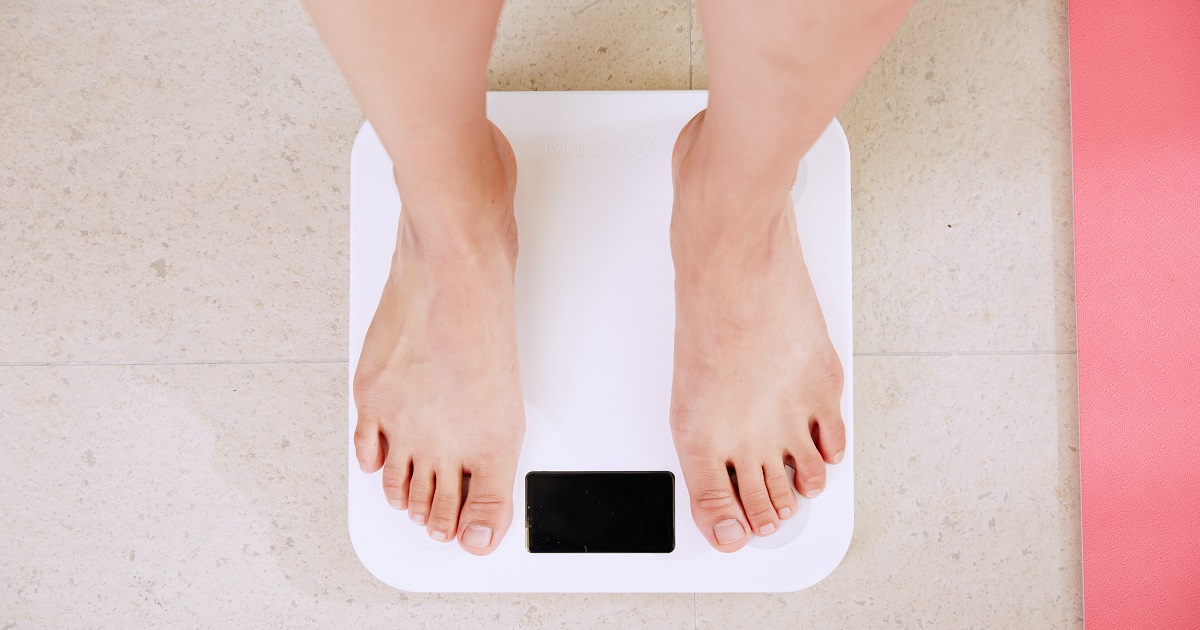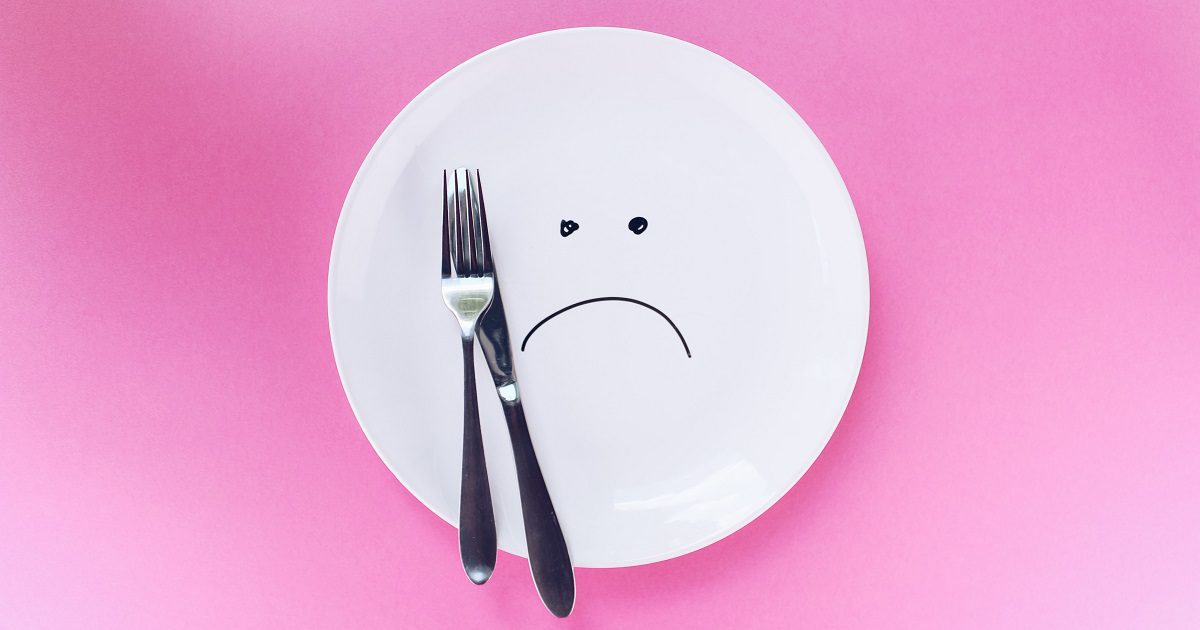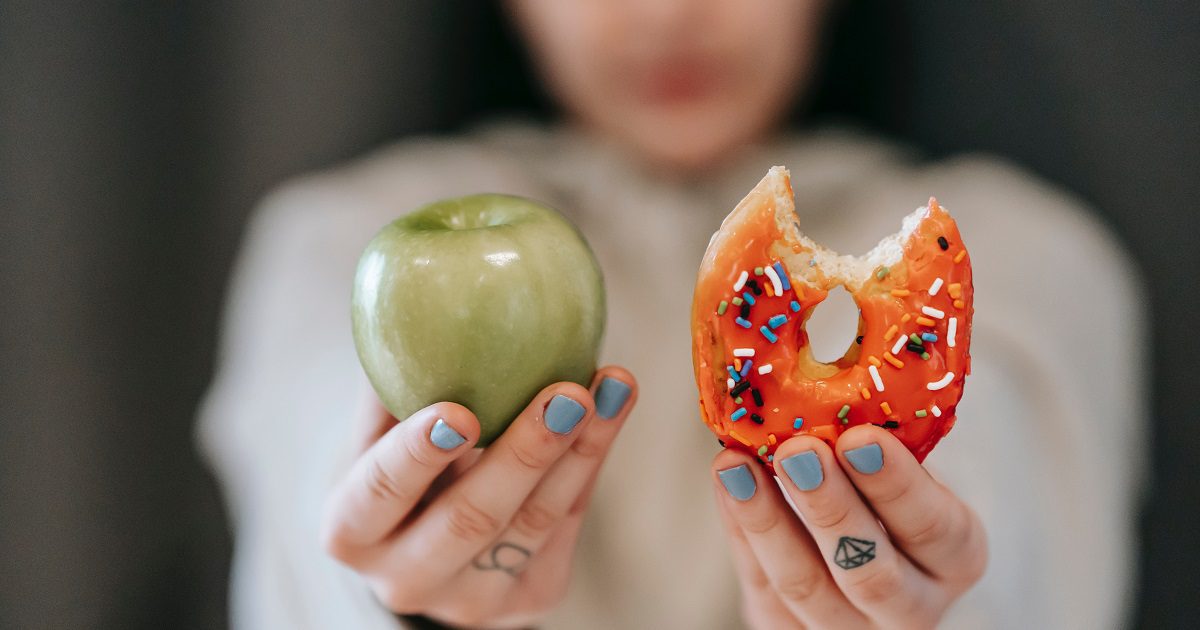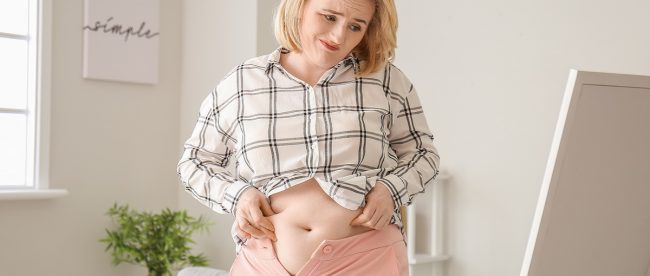That lockdown stone: should you really be asking, ‘am I obese?’
Many of us are looking sadly at our spare tyres and pondering our lockdown stone. But should we be taking it more seriously? National Obesity Week gives us an opportunity to look at whether we’re actually obese.
For many of us, lockdown has been harsh, whether that be to our brains or our bodies. Our mental wellbeing has been affected by COVID, but our physical health has also taken a toll. And as you step cautiously on to the scales (again) you should perhaps be asking yourself, “am I obese?”
Sorry. Not a nice word, obese.
How did we get here?
With people furloughed, both working from home and generally being stuck indoors, physical activity fell. Walking to work, going out and about, gyms closed…
And who could forget the comfort eating (and drinking!) we did? Not that we’re judging – sometimes all that got us through the days was great portions of comfort food or a vast gin and tonic.
But the end result is unavoidable. Many of us have piled on weight, and January seems like a good time to look at this.
What actually is obesity?
If you’ve had to breathe in to do up your jeans after lockdown, or bought a bigger size, you’re probably thinking it’s not too serious. You’ve just put a bit on, right? But it’s easier to be clinically obese than you think.
BMI is where you’ll find the truth, not on the bathroom scales
It’s not just about weight. It’s about your Body Mass Index (BMI), which takes into consideration your age and height too. It’s about distribution of weight, and lifestyle. As an example, you can be 5’3” and at 12 stone be classed as obese on the scale. But add another six inches at the same weight, and you’re defined as a healthy weight.
Many of us already know or have checked our BMIs, thinking perhaps we are only a few pounds overweight, only to be left horrified at the results. And it definitely feels harsher for shorter people! But the BMI is where you’ll find the truth, not on the bathroom scales.
If you’re not sure how to calculate your BMI, there’s an easy form on the NHS website.

So is it all about how fat you are?
Not really. Obesity isn’t about being perceived as visibly ‘fat’. It’s a name given to a category on a weight spectrum which exists to monitor health. Obesity can lead to high cholesterol and high blood pressure which in turn can cause heart attacks, heart failure, and strokes.
Of course, being healthy isn’t just about the numbers; it’s also about exercise and diet. For example, someone who weighs more than their friend may exercise more and have a low cholesterol diet. Their friend, however, could have an unbalanced diet and unhealthy habits.
The impact of lockdown obesity
Shockingly, an estimated two-thirds of adults in the UK are above a healthy weight, with at least half of those considered obese.
More than 40% of adults have gained weight during the pandemic
Gaining obesity status during lockdown – while entirely normal for a lot of people – created more consequences that normal. Being obese could lead to people being hospitalised pre-COVID, but the danger was greater during the pandemic due to the double risk of complications from COVID-19.
More than 40% of adults have gained weight during the pandemic, with the average addition coming in at half a stone (at least for us!).
With £6.1 billion being spent on obesity-related illnesses per year – which is predicted to go up to £9.7 billion per year by 2050 – it’s time to think about our health.
Risks of obesity include:
• Reduced life expectancy
• Cardiovascular disease
• Type two diabetes
• At least 12 kinds of cancer
• Liver and respiratory diseases

The Dos and Don’ts of battling obesity
How not to lose weight
Who hasn’t tried a crash diet? Let’s face it, most of us have dabbled in a fad diet somewhere along the line, but they’re neither proactive nor healthy.
… when we break our diets, we feel guilt and regret
There are the infamous ones, including juice diets, seven-day ‘detoxes’, and that weird thing with maple syrup and lemon that Beyonce does, all of which claim to help with ‘rapid weight loss’. These diets rely on severe restriction of food and calorific intake. This is unsustainable in the long term, and it can often result in people reverting to the bad habits that made them overweight in the first place.
Then there’s other unhealthy eating habits, like stopping eating our favourite foods, cutting out entire food groups, eating foods we hate (celery we’re looking at you), or starving ourselves to the point of exhaustion. But this isn’t a long-term solution, nor is it healthy.
It’s also a downer on our mental health, because when we break our diets, we feel guilt and regret. And after the past couple of years, we understand only too well how important mental health is.
Slow and steady wins the race
It’s the small habits we change that can make a long-term difference; start small to achieve the big changes.
1. Maybe not the obvious. Look at your drinks choices
Yes fizzy drinks, coffees, and teas are way more delicious than water, but people don’t realise what difference it makes to decrease the number of sugary drinks you’re consuming. Start swapping some of those drinks for some good old H2O.
2. Ease up on the alcohol consumption
We all know it – though we may not like to hear it. Alcohol can have a huge impact on your weight. Reducing your intake of alcohol can help with weight loss and reduce your blood pressure, so it’s a win-win.

3. Regular amounts of small exercise
You don’t have to go mad! It can be tempting to view exercise as an intense activity. But exercise can be a simple walk, gentle jogging, leisurely swimming, cycling, or even yoga. The key is to do something you love, something you’ll keep doing. Even if it’s just walking the dog.
The important part is that you’re moving around and getting the blood pumping around your heart. Committing to two hours of exercise a week is a good start: that’s four days of 30 minutes of exercise.
It can be simple to incorporate that into your life, like walking your dog for longer, cycling to the shop instead of driving, or maybe just doing some yoga/Pilates in front of the TV in the evening. It’s always fun with a friend too, so buddy up. You can join Facebook groups and keep an eye out for local announcements for people looking to exercise with friendly faces.
4. Eat more fruit and veg
I mean… this one is just so obvious right? Many of us struggle to get our five a day. A lot of us don’t even like fruit and veg! Trick yourself by making food you can sneak veggies into, like soups and stews.
Top tip: always carry a piece of fruit around with you. If you’re like me, when you get hungry you’ll reach for it out of convenience.

5. Decrease your processed grains
Processed grains (for that read white) like bread and bagels aren’t terribly nutritious, despite being delicious. They can cause a spike in your blood sugar which can then translate into cravings. Swapping your morning cereal or toast for a protein-filled meal, like eggs, will keep you feeling full for longer. And opt for wholegrain alternatives.
The takeaway (pun intended)
We don’t need to say ditch the takeaways, do we? But just in case – not only are they high fat, most delivery meals or processed foods are heavy on sugar and salt. Get in the kitchen. Delete those apps!
Your weight isn’t just about how you look, but more about your health. It’s important to look after your body, as it does so much for you.
Obesity can lead to physically detrimental problems, and it has a huge impact on our health care. But don’t starve yourself out of guilt and don’t be ashamed. Small steps are the way forward: take it one day at a time and start to change those habits.
If there is one thing you take away from this article, let it be this: you’re not alone. Lockdown has been hard for all of us, and everyone has struggled in some way… so don’t be too hard on yourself.
Not sure where to begin?
Better Health – NHS is a free weight loss plan app with a 12-week program with lots of support. Launched by the NHS as an attempt to battle the rising problem of obesity.
Support Groups – Obesity UK shows you the available support groups for you to choose which one aligns with your needs.
Healthy eating – British Heart Foundation gives you a guide on healthy eating including how to maintain a balanced diet.

Lili works across all the channels; writing articles, taking photographs, creating content, and designing eye-capturing imagery. She’s an animal-lover who cries just seeing a picture of a baby sloth.



Leave a comment